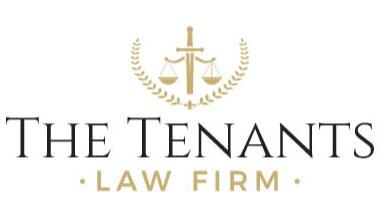LGBTQIA+ Housing Discrimination Protections in Southern California


Society has used housing laws and ordinances to discriminate against LGBTQIA+ (lesbian, gay, bisexual, transgender, queer/questioning, intersex, and allies) people for a long time. In the 1970s, members of the equal rights movement fought the evangelical anti-gay crusader Anita Bryant when she succeeded in organizing a campaign to repeal a recently-passed anti-discrimination law in Miami, Florida, which added sexual orientation to the list of protected classes. Today, the fight rages on in many places across the United States to protect people from being evicted because they are gay. Although more protections have been added recently, twenty-two states—including California—protect people based on both sexual orientation and gender identity.
Most LGBTQIA+ people are worried about discrimination. According to a 2015 survey of LGBT Americans, seventy-three percent of American lesbian, gay, bisexual, and transgender people are strongly concerned about housing discrimination from real estate agents, landlords, and neighbors. Their fears are not unfounded. According to a 2017 study, landlords and real estate agents are less likely to show gay men and transgender people apartment; however, while lesbians did experience housing discrimination, it was not statistically significant.
However, the discrimination experienced by the LGBTQIA+ community is not actionable under current federal law.
Under the federal Fair Housing Act, sexual orientation and gender identity are not protected classes, says the U.S. Department of Housing and Urban Development. However, they argue that individual members of the LGBTQIA+ community might be protected under the act anyway; for example, a gay many might be able to claim disability discrimination if a landlord refuses to rent to him because he will infect other tenants with HIV/AIDS. Since any gender-nonconforming behavior is covered under the protected class of sex, a transgender person might claim discrimination if they are discriminated against for not conforming to someone else's gender role expectations.
Although there are no direct federal protections, there are currently more states than not that have passed legislation protecting LGBTQIA+ people from housing discrimination. Since 1992, California has counted itself among the states to pass non-discrimination laws protecting people from housing discrimination on the basis of sexual orientation; and in 2003, the law was expanded to include gender identity and gender expression.
In addition to state protections, there are city-wide civil and human rights ordinances that prohibit discrimination and bigotry in the City of Los Angeles and the City of West Hollywood. In Los Angeles, the anti-discrimination ordinance was passed alongside another measure to create a commission to investigate civil rights violations, and if the perpetrator is ruled to have violated the ordinance, the power to levy fines up to $125,000 per harassing act. Although these local protections are not totally available to members of the LGBTQIA+ community, there is effort underway at the state level to allow local enforcement of housing discrimination provisions based on sexual orientation and gender identity or expression based on the laws passed in Los Angeles and West Hollywood.
If you have been denied housing or evicted based on your sexual orientation or gender identity or expression, it can be a complicated legal process to defend your rights at the federal, state, and local level. Thus, it is important to contact an experienced legal team familiar with housing discrimination laws. The attorneys at Tenants Law Firm have fought hard and won for clients who have experienced housing discrimination on the basis of sexual orientation and gender identity or expression, so contact them today by filling out this easy online form.
